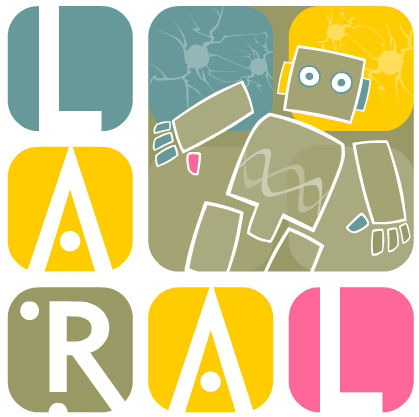The Laboratory of Artificial Life and Robotics is a research group (founded by Domenico Parisi in 1985 and coordinated by Stefano Nolfi since 1994) that carry on research on Adaptive Behaviour, Embodied Cognition, Collective Behaviour, Autonomous Robots. The laboratory conducted pioneering research in Artificial Life and Evolutionary Robotics.
Our main research activity involves the study of artificial organisms that are embodied (i.e. that are controlled by an artificial neural network but that also have a body), situated (i.e. that are located in an external environment with which interact) and adaptive (i.e. that adapt to their task environment by varying phylogenetically and/or ontogenetically).
Our research study focuses on the mechanisms underlying individual behaviour (i.e. sensory-motor coordination, motivation, and behaviour arbitration), collective behaviour (i.e. coordination and cooperation, communication) and cognition (categorization, integration of sensory-motor information through time, anticipation etc.).
We look at behaviour and cognition as a complex adaptive system that emerges from the interactions between the agent's control system, the agent's body, and the external environment (including the social environment). Moreover we consider adaptive techniques (i.e. evolutionary/learning techniques in which the free parameters that vary during the adaptive process regulate the fine-grained interaction between the agent and the environment and in which variations are retained or discarded on the basis of their effect at the level of the global behaviour exhibited by the agent or by the agents) as the most suitable method to developing effective artificial embodied agents.
Areas of interest include: autonomous robots, evolutionary robotics, adaptive behaviour, collective and swarm intelligence, embodied cognition, educational technologies.


